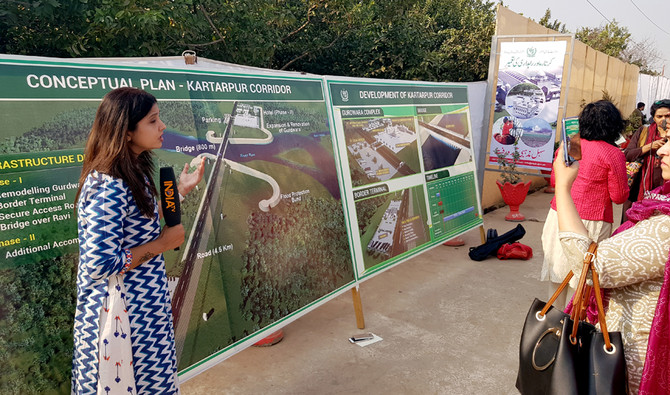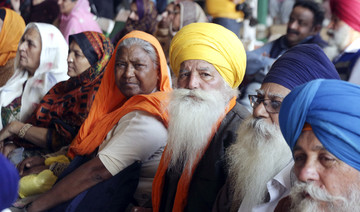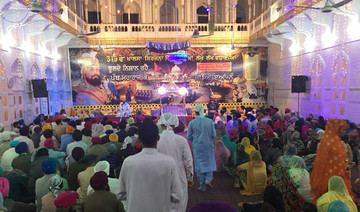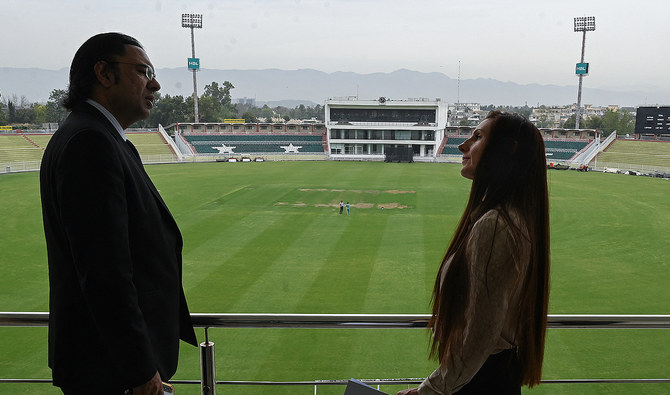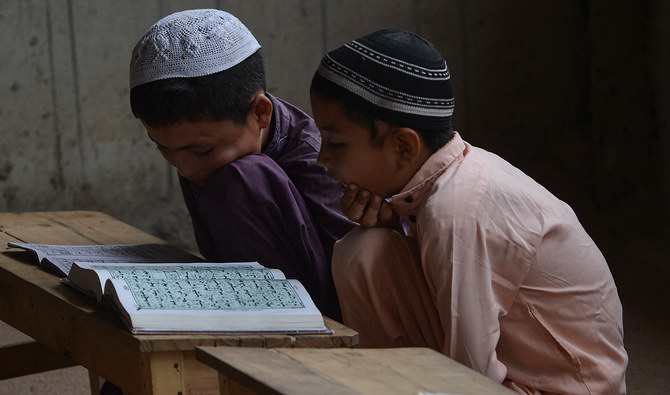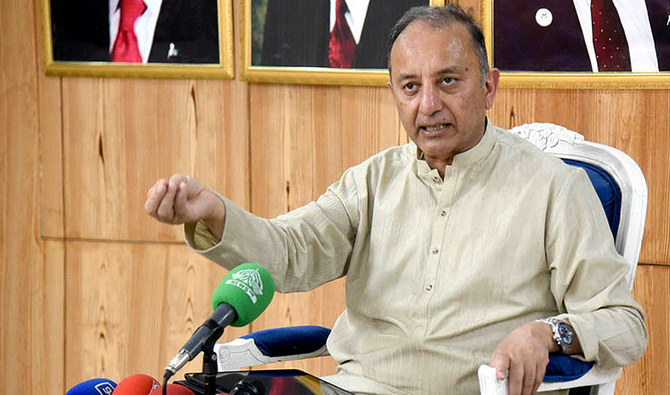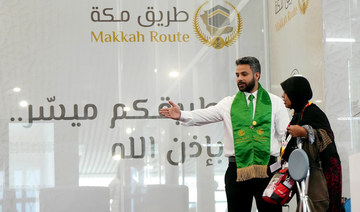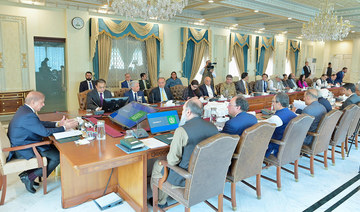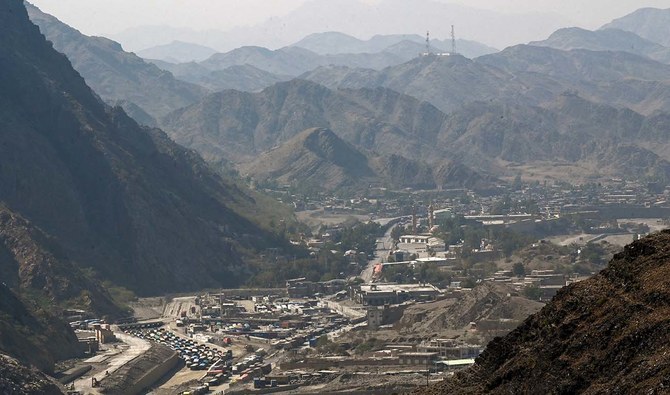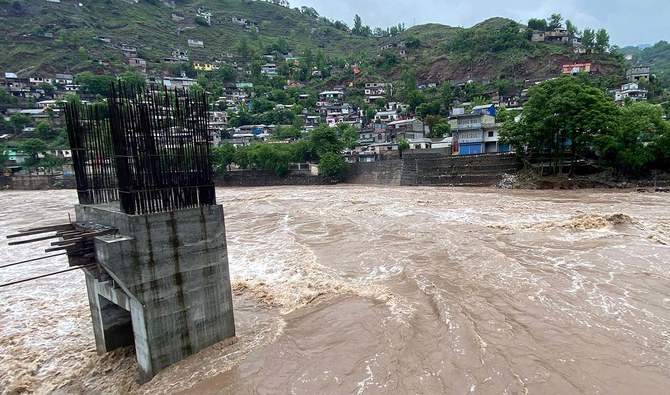KARTARPUR, LAHORE: Neeloun Singh is living in the moment.
The 73-year-old Sikh says, for now, she does not want to talk about politics or the testy relations between India and Pakistan, as she watches her dream come true by being a part of history in the making.
The catalyst? Singh was part of the groundbreaking ceremony for a corridor which will connect the final resting place of Guru Nanak, Sikhism’s founder, in Kartarpur, Pakistan with the Dera Baba Nanak in Gurdaspur, in India’s Punjab. The four-kilometer corridor is expected to be completed in six months.
Singh, who lives about five miles (eight kilometers) away from Kartarpur, said she has waited her entire life for this moment when she would be finally able to visit the revered site. Many times, in her life, she says she walked up to the Pakistan-India border but could never cover the remaining half of the distance to make it to the shrine which is located along the Pakistani side of the river Ravi.
Due to travel restrictions between India and Pakistan, she had to instead take a longer route of 200 kilometers and cross several hurdles in the process, such as acquiring a visa, security clearance, and financial expenses. “I have no words to thank my Guru Jee who called me for a darshan (visit) before I left this temporary world,” she told Arab News, wiping her tears away.
Singh was one among several hundred Sikh pilgrims who participated in the ceremony yesterday. “I am a frequent visitor of Baba Sahib’s shrine and come to Pakistan three to four times every year. Today is a historic moment for the Sikh community in India who would be able to walk into Pakistan without any hassle [after the corridor is complete],” Harvinder Sigh Sarna told Arab News.
On Wednesday, Pakistan Prime Minister Imran Khan, along with an Indian delegation, laid the foundation stone for the corridor. The Indian side included the Minister for Food Harsimrat Kaur Badal, Minister for Housing Hardeep S. Puri, Indian Punjab Minister for Local Government and Tourism, and cricketer-turned-politician, Navjot Singh Sidhu. Several Indian journalists were also part of the event.
In his speech, Khan reiterated the need for peace and extended an offer of friendship to India. However, the ground reality was starkly different as the two countries could not agree on the joint opening of the corridor, with ceremonies organized on two different dates for the purpose.
India's Vice-president, M Venkaiah Naidu laid the foundation stone on Monday at Mann, a place in Gurdaspur, a district of Indian Punjab, while Khan led the ceremony at Kartarpur in the Narowal District of Pakistan’s Punjab on Wednesday.
That aside, Sikhs who attended the event said they were very happy with the initiative as it provided them with an opportunity to visit a place where Guru Nanak spent the last years of his life. “We feel like flying in the air. We cannot believe that visiting the shrine of Guru Jee could be that much easy for a Sikh,” Balwant Kaur, a resident of Amritsar, told Arab News.
The village of Kartarpur was established by Guru Nanak where he has also been laid to rest. His followers constructed a shrine there in the 16th century and therefore, the place is a revered site for Sikhs from across the world. It is visible from the Indian side, too and several Indian Sikhs often pay homage by using telescopes for the purpose.
“The Indian government has built a platform on the border between Pakistan and India and fixed a telescope to view the shrine. I have seen the shrine from that platform on a few occasions. Now I am happy that the new arrangement will ensure our visa-free visit to the shrine in person,” Harbjeet Sidhu, another Indian Sikh who took part in the ceremony, told Arab News.
The Indian government will construct and develop the Kartarpur corridor from Dera Baba Nanak in Indian Punjab’s Gurdaspur district to the border, while Pakistan will build the other part of the corridor, connecting the border to the Gurdwara in the Kartarpur Sahib area of Narowal district.
The proposal to construct the corridor first came up for discussion in 1998 but was shelved. It was renewed by Pakistan's Army Chief General Qamar Javed Bajwa in August this year.
Launching the program from the Indian side, Naidu said in comments reported by the Indian media that the corridor “will become a symbol of love and peace between both the countries”.
Navjot Singh Sidhu projected the corridor as a ‘bridge’ which will ‘erase enmity’ between India and Pakistan. He said that it would result in people getting connected with one another and termed it as a great possibility for both the nations.
Indian minister Badal, on her part, said it was an emotional moment for her. “If the Berlin Wall can fall, hatred between India and Pakistan can also end. It can be a new beginning in the name of Baba Nanak who said na koi Hindu na koi Muslim lekin ek Onkar [no one’s Hindu or Muslim, we are all one],” a visibly-emotional Badal said.
While a majority were hopeful that the move would usher in good times for both the nations, few others remained skeptical. “It is a gimmick. The establishments never allowed the masses to intermingle. The corridor is not a fresh step to facilitate the people. The countries have air, train and bus service to get the people from the two sides closer but the real problem is the visa issuing process,” Advocate Liaqat Ali said.
It is pertinent to note that besides an air link connecting the two countries, there are several other options too, such as the Khokrapar-Mona Bao train service which runs once a week; the Lahore-Amritsar train service (Samjhota express) which runs once a week; the Lahore- Delhi Dosti Bus which plies four times a week; and the Nankana Sahib-Amritsar bus service which operates once a week. However, the number of passengers is very low as the governments are always reluctant to issue visas to citizens from either side.


